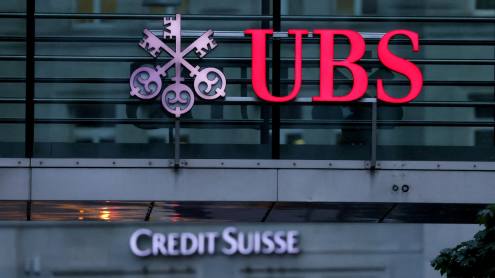While they can certainly be included in the category of universal banks, this classification, which has the merit of highlighting their diversification, also blurs their distinguishing features in times of crisis.
Three factors differentiate French banks. First, the contribution of retail banking to their net income is slightly more than the world average of 57% in 2007. Some other European banks, in Spain or Italy, are certainly more retail-oriented but the French model is more stable as it is based on fixed-rate mortgage loans, and hence, amply protected margins. This financing model is less vulnerable to bubbles than other countries, making French retail banking more resistant in times of crisis.
Second, they have developed distinctive expertise in specialist areas, such as asset management, insurance and consumer credit. This relies on a thorough mastery of each discipline, as is apparent from the performances and ratings achieved in international classifications by each of the specialist companies concerned. This expertise is reinforced by the marketing undertaken by retail banking networks, which frequently underpins such companies and has led to a transformation of the model, creating an innovative, well-defined, long-term relationship between producer and distributors.
Third, the universal banking model developed in France also benefits from corporate and investment banking operations of international standing, which appear to be relatively resistant to financial crisis (although it would be premature to conclude this before an end to the current one).
International scale
The leading French banks occupy top 10 positions in several international classifications and, although the level of losses on certain activities may have been substantial, the financial crisis has impacted upon them less severely than other players. The resistance
of this model stems from two factors: a high level of diversification; and targeted expertise in certain areas of derivatives and structured finance. In-depth knowledge of a particular area does not provide complete protection from the consequences of a, generally regarded, unprecedented crisis. However, the effects are less severe and owning such in-depth knowledge allows the consequences to be absorbed and the necessary changes to be implemented more rapidly.
As resistant and well balanced as this model is, it will, however, need to adapt to the post-crisis banking landscape. A number of initial trends, over and above the changes and risks associated with the economic crisis, are already emerging.
In retail banking, customer fears surrounding the security of deposits has led to a rethink of some products, to bring greater clarity and certainly greater simplicity. A review of the distribution channels has also been required in order to strengthen the proximity component without abnormal cost increases.
Transparency and efficiency
The asset management model must also become more transparent and efficient. This means a significant reduction in the operating ratio. The initiatives of French banks to revise their models have not necessarily been publicised. Other European players have chosen to dispose of their business lines, currently without success. The cards are in the process of being reshuffled and the integrated French model, combining economies of scale and expertise in customer tracking, is proving its relevance.
Investment banking operations are also changing and the announcements from French and European groups are numerous. The common characteristic is a need to reduce risk profile and lower overheads. It will be several months before the common factors of these different initiatives can be identified.
The French banks have shown that they are founded on a highly resistant model. This concrete advantage will have a lasting effect if each player continues to fine-tune its model, absorbing the lessons of this crisis at every stage of its development.
The objective is to regain investor confidence as soon as possible. Only when banks are able to re-access the capital markets can it be said that an end to the crisis is in sight. French banks may be among the first to grasp such opportunities.
George Pauget is CEO of Crédit Agricole and chairman of the French Banking Federatio.











